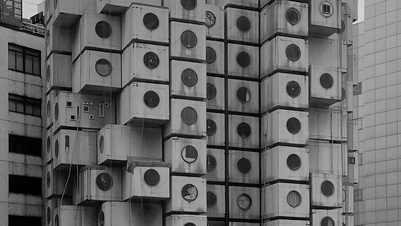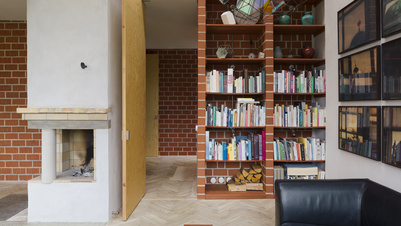Bygning 70
Philip de Langes Allé 11
1435 København K
Kunstakademiets Arkitektskole inviterer til åben forelæsning med John Lin. Forelæsningen er del af forelæsningsrækken: "International Lectures Series", hvor Arkitektskolen inviterer store internationale navne indenfor til en eftermiddag med fokus på væsentlige internationale temaer i arkitekturen.
Rural Urban Framework: Transforming the Chinese Countryside
How do we design for rapidly developing and ever-changing contexts? Can we replace the mantra of ‘built to last’ for ‘built to adapt’? Building architecture in sites of uncertain transformation calls for a design approach that embraces contradiction as a strategic response.
In 2005, China’s 11th 5-year plan proposed a significant shift of focus from the cities to the countryside, speculating that during the next 20 years until 2025, 350 million rural citizens will become urbanized. At the same time, Rural Urban Framework began to work in Qinmo - a small rural village in Guangdong Province - developing a series of projects as strategic responses to the pressures of urbanization and the subsequent adjustments to rural livelihood.
Since then, we have continued researching and building projects in over 20 such sites in China and most recently in Mongolia. Looking back, we realized that our strategies are full of contradiction. We have resolved collisions between small scale and large scale infrastructure. We have applied both top-down and bottom-up strategies. We have inserted “alien” programs and adapted local contexts. Our tactics reflect the multiple conflicts that have arisen through the urbanization process. Ten years on, we can critically reflect on how our projects can both reveal and contribute to the complex, paradoxical nature of rapid urbanization.
A toolbox of strategies
The result is a toolbox of strategies. The goal is a clearer understanding of the specific characteristics of rural- urban transformation. We have organized our work as a series of five debates: Individual Prototype vs. Collective Design, Incremental Planning vs. Instant Urbanism, Site Specific vs. Generic Construction, Micro Insertion vs. Macro Infrastructure, and Programmatic Mutation vs. Spatial Adaptation. Each pair of themes is illustrated though direct project experience. These ten projects illustrate the necessity for architects to adopt multifaceted approaches to developing regions. Rather than thinking of architecture as a fixed solution to a stable site, can we begin to conceive of architecture to have a key role in the process of transformation, and to be able to adapt and evolve in ever-changing conditions?
About Rural Urban Framework (RUF)
In 2005 the Chinese government announced its plan to urbanize half of the remaining 700 million rural citizens by 2030. At the same time, Joshua Bolchover and John Lin set up Rural Urban Framework (RUF), a research and design collaborative based at The University of Hong Kong.
Conducted as a non-profit organization providing design services to charities and NGOs working in China, RUF has built or is currently engaged in various projects in diverse villages throughout China and Mongolia. The projects include schools, community centers, hospitals, village houses, bridges, and incremental planning strategies.
As a result of this active engagement, RUF has been able to research the links between social, economic, political processes and the physical transformation of each village. The projects integrate local and traditional construction practices with contemporary technologies.
Joshua Bolchover and John Lin are currently Associate Professors at the University of Hong Kong and have taught and lectured in numerous academic institutions including the Chinese University of Hong Kong; The Bartlett, UCL; Cambridge University and the Royal Danish Academy of Fine Arts.


















